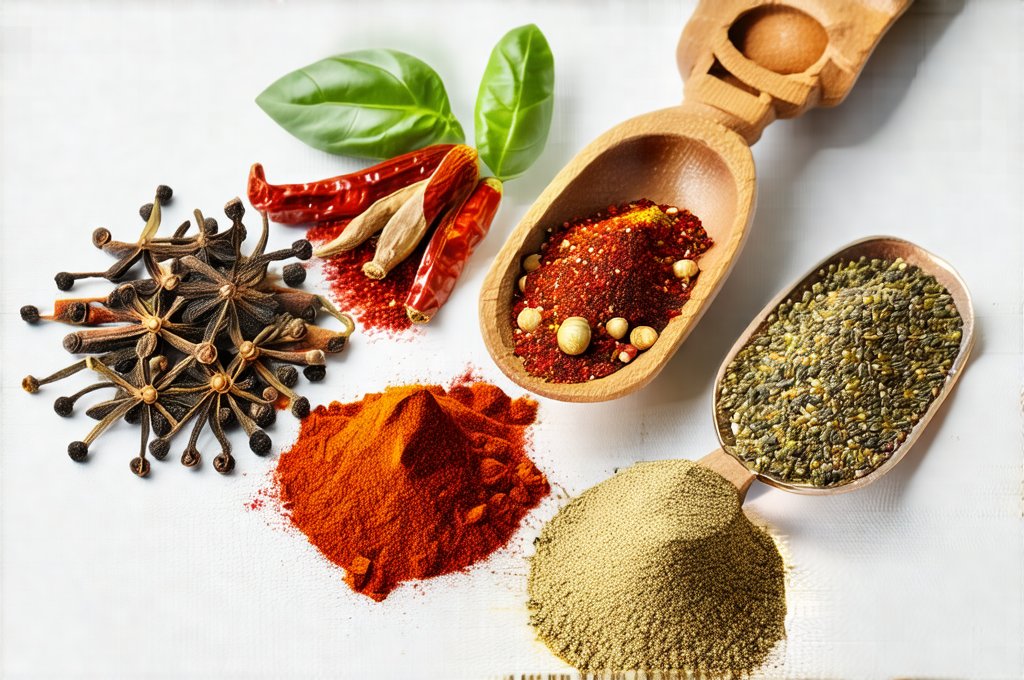Reflux, commonly experienced as heartburn, is a frustrating condition affecting millions worldwide. It occurs when stomach acid flows back up into the esophagus, causing irritation and discomfort. Dietary factors play a significant role in managing reflux symptoms, and spices often find themselves at the center of debate: are they culprits that exacerbate the problem, or potential allies that can aid digestion? The truth is far more nuanced than a simple yes or no answer. Many people report worsened reflux after consuming certain spices, while others find relief through specific combinations. Understanding why this happens requires looking beyond blanket statements and delving into the properties of individual spices, how they interact with our digestive system, and each person’s unique sensitivity.
The complexity arises from several factors. Reflux isn’t a one-size-fits-all condition; its triggers vary widely among individuals. What causes heartburn in one person might not affect another at all. Moreover, the way spices are used—fresh, dried, ground, or as part of a larger meal—can influence their impact. Finally, cultural diets often incorporate spices heavily, leading to both traditional remedies and potential exacerbations depending on individual tolerance. This article will explore the multifaceted relationship between spices, reflux, and digestion, aiming to provide information that empowers readers to make informed choices about incorporating these flavorful ingredients into their diet.
The Double-Edged Sword: Spices & Reflux Triggers
Certain spices are known triggers for acid reflux in susceptible individuals. This isn’t necessarily due to the spice itself being inherently ‘bad’, but rather its chemical properties and how they interact with digestive processes. – Capsaicin, found abundantly in chili peppers, can relax the lower esophageal sphincter (LES), the muscle that prevents stomach acid from flowing back up. This relaxation allows for easier reflux. – Similarly, menthol present in mint and peppermint, while soothing to some, can also have a relaxing effect on the LES, increasing the risk of heartburn. – Other spices like garlic and onions contain compounds that may increase stomach acidity or promote gas production, both contributing to reflux symptoms. It’s important to note these effects aren’t universal; some individuals tolerate these spices without issue.
The intensity of these effects also depends on factors such as portion size and preparation method. A small pinch of chili powder in a large dish may be well-tolerated, whereas a spicy curry could trigger significant discomfort. Furthermore, the combination of spices matters. Pairing a reflux-triggering spice with fatty foods (known to worsen reflux) is more likely to cause problems than consuming it on its own. This highlights the importance of mindful consumption and paying attention to how your body responds to different combinations.
Identifying personal triggers is key. Keeping a food diary can be invaluable in pinpointing which spices consistently lead to heartburn or other digestive issues. This allows for informed dietary adjustments, focusing on well-tolerated options while minimizing exposure to problematic ones. Remember, eliminating spices entirely isn’t always necessary; it’s about finding the right balance and understanding your individual sensitivities. Can you be addicted to trigger foods can sometimes play a role in these patterns.
Spices as Digestive Aids: Beyond Just Flavor
While some spices can aggravate reflux, many others possess properties that actively support healthy digestion. – Ginger, for example, is well-known for its anti-nausea effects and ability to stimulate gastric emptying, helping move food through the digestive system more efficiently. This reduces the likelihood of stomach acid lingering and flowing back up into the esophagus. – Turmeric contains curcumin, a potent anti-inflammatory compound that can help soothe the digestive tract and reduce inflammation associated with reflux. – Cumin is another spice believed to aid digestion by stimulating enzyme production, further enhancing the breakdown of food.
These spices don’t just mask symptoms; they address underlying issues related to digestion. Poor digestion often leads to increased stomach pressure and a higher risk of reflux. By promoting efficient digestion, these spices can help prevent acid buildup and reduce the frequency of heartburn episodes. However, it’s crucial to remember that even beneficial spices should be consumed in moderation, as excessive amounts could potentially cause discomfort. Can blended diets help gut repair can also support digestive health alongside spice choices.
The key is to focus on spices that support digestive health without relaxing the LES. This often means favoring warming spices like ginger, cinnamon, and cardamom over cooling spices like mint and chili peppers. Experimentation and careful observation are essential for discovering which spices work best for your individual system. Are trigger foods always obvious is a question many ask when experimenting with diet.
Ginger: The Stomach Soother
Ginger has a long history of use in traditional medicine as a remedy for digestive complaints. Its effectiveness stems from several key properties. Firstly, ginger contains gingerols, bioactive compounds that help accelerate gastric emptying. This means food moves more quickly from the stomach to the small intestine, reducing the time available for acid reflux to occur. Secondly, ginger possesses anti-inflammatory properties which can soothe irritation in the digestive tract. Lastly, it acts as a carminative, helping to reduce gas and bloating – both common triggers for discomfort and potentially exacerbating reflux symptoms.
There are various ways to incorporate ginger into your diet: – Fresh ginger grated into tea or added to meals. – Ginger powder used as a seasoning. – Ginger chews or candies (choose options with minimal sugar). However, even with ginger, moderation is key. Excessive intake can sometimes cause mild heartburn in sensitive individuals. Start with small amounts and gradually increase as tolerated. Can hydration help ease bloating is another helpful addition to a digestive wellness plan.
Ginger’s ability to address multiple facets of digestive health makes it a valuable tool for managing reflux symptoms naturally. It’s not a cure-all, but it can be a significant component of a holistic approach to digestive wellbeing.
Turmeric & Curcumin: Anti-Inflammatory Powerhouse
Turmeric, renowned for its vibrant color and earthy flavor, owes its health benefits primarily to curcumin, its active compound. Curcumin is a powerful anti-inflammatory agent, which can help alleviate the inflammation often associated with acid reflux disease. Chronic inflammation in the esophagus can worsen symptoms and damage tissue; curcumin’s ability to reduce this inflammation offers potential relief.
However, curcumin has relatively low bioavailability—meaning it isn’t easily absorbed by the body on its own. To enhance absorption: – Combine turmeric with black pepper (piperine in black pepper dramatically increases curcumin absorption). – Consume turmeric with healthy fats (fats also aid in absorption). – Consider using a curcumin supplement formulated for enhanced bioavailability.
Beyond inflammation, turmeric may also help protect the stomach lining from damage caused by acid exposure. This protective effect can be particularly beneficial for individuals experiencing chronic reflux. Can emotions trigger physical gut reactions is a consideration alongside inflammation.
Cinnamon: A Surprisingly Supportive Spice
Cinnamon, often associated with warmth and comfort, isn’t just a delicious flavor; it can surprisingly aid digestion in some individuals. While not as potent as ginger or turmeric, cinnamon possesses several properties that contribute to digestive health. It contains compounds that may help reduce bloating and gas production, lessening the pressure on the stomach and reducing the risk of reflux.
Cinnamon also exhibits mild anti-inflammatory effects, contributing to overall gut health. However, it’s crucial to distinguish between Ceylon cinnamon (true cinnamon) and Cassia cinnamon (the more common variety). – Ceylon cinnamon is generally considered safer for regular consumption as it contains lower levels of coumarin, a compound that can be harmful in large doses. – Cassia cinnamon, while more readily available, should be consumed in moderation due to its higher coumarin content.
Adding a pinch of Ceylon cinnamon to your tea or oatmeal may offer subtle digestive benefits without triggering reflux symptoms for many people. As with all spices, individual tolerance varies, so pay attention to how your body responds. Can music or light affect gut symptoms highlights the complex interplay of factors impacting digestion.


















